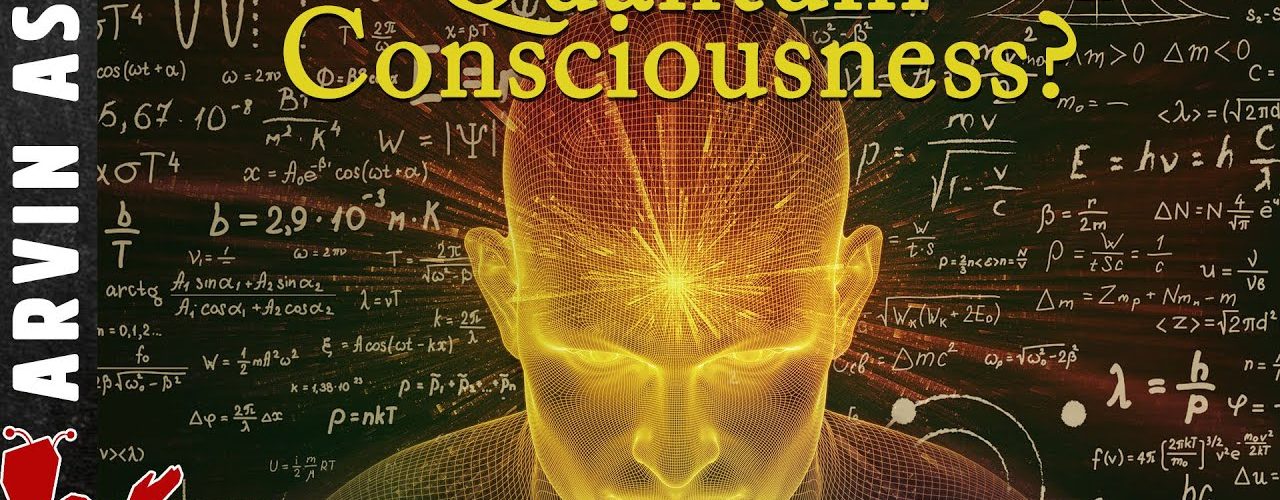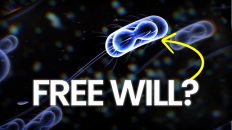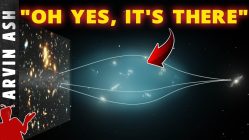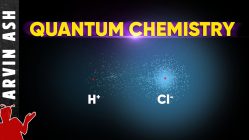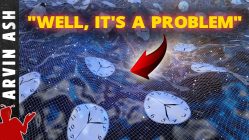In 1805, Swiss engineer Henri Maillardet built an automaton that could draw 4 pictures and write three poems. This automaton can be seen today at a museum in Philadelphia, Pennsylvania. But this wasn’t the first. Automatons had been around for centuries prior to Maillardet’s work. These were not much more than fancy humanoid mechanical clocks, consisting of springs, gears, and levers.
Today we have the modern versions of these automatons, such as self-driving cars, robots, drones, and other machines with sophisticated electronics that allow them to see with their sensors, and react to their environment. Some can even make decisions based on machine learning and other adaptive programs. Are these are conscious machines?
There is a reductionist claim that we humans are not that far removed from these machines. That we are sophisticated version of self driving, decision making cars. They claim that everything about us reduces ultimately to physics, that we are mere results of an underlying unchanging set of physical laws and rules that determine our behavior. And any perceived consciousness, is as much a result of the underlying physics, as automatons are a result of the movement of gears and levers.
Ultimately, the free will that we believe we have, may not really exist because at the core, we are bound by the mathematical underpinnings of reality. That the entire universe is a sophisticated kind of clock ruled by the laws of physics, and we as part of that mechanism are subject to the same set of laws that govern all the processes, including the ones taking place in our brain, that results in consciousness.
And these could delude us to think that we have any semblance of control over our inevitable destiny. Are we just sophisticated automatons?
You might say, what about quantum mechanics. Isn’t it inherently not deterministic? That behavior at the quantum level can never be predicted, that we can only know the probability of certain outcomes, but never be able to predict it in advance unless a measurement is made? And doesn’t this unpredictability of natural laws give us at least some degree of free will.
Well, that is a great question, that certain scientists, most notably Sir Roger Penrose tried to tackle. Is there a quantum physics connection to consciousness that ensures that we have free will? Can we know the truth? We may be able to come close by looking at the evidence on both sides of the argument.
Roughly speaking Reductionism is the idea that any complex system is the sum of its simpler more fundamental individual parts. For example, a reductive approach by a materialist would be that the complexity of your consciousness is the sum of all the chemical and electrical interactions that occur in your brain. Matter and energy, and the laws of physics that determine how they interact is all there is. Physics is fundamentally at the root of any perceived complexity. There is nothing else.
Opposition to this claim hinges on the subjective and objective observation that life and specifically consciousness is somehow different. For example, if a human being was nothing more than matter and energy, then what would be the difference between a person who is alive, and the same person immediately after his death. All the matter and energy of the person would not have changed. Yet something is different. What is that difference?
There seems to be one main difference – consciousness.
In 1641 Rene Descartes proposed the idea of a malicious demon or evil genius. He asked what if a demon with “utmost power and cunning has employed all his energies in order to deceive me…” Decartes says that such a demon could take over his mind to create a dream or delusion about the reality that he lives in, that nothing may actually exist. He says what if I don’t really have eyes or flesh or any other senses, but believe that I do.
Not only our physical reality, but any decisions or free-will we may perceive to have could also be part of this elaborate hoax. The movie the Matrix explores this idea in a science fiction context.
Would there be any way for us to know the truth? Decartes said, there is one thing that even the evil demon could not delude me of, and this is my sense of my existence. Because in order for this not to be true, the demon would have to create the illusion of existence. But in order to create this thought, he would need a thinker. He famously said, “I think, therefore I am.” I can only be fooled if my mind exists, Everything else can be a delusion.
And if my mind cannot be fooled about my existence, but every other part of my body can, then according to Decartes, my mind must be separate from my body. And this idea of mind-body dualism, is sometimes used to justify free will, because if the mind is separate from the body, then it is non-physical and not subject to the laws of physics. The choices if made by this non-physical mind are then entirely my own – that’s what free will is.
I am using free will and consciousness interchangeably here. And philosophy purists may ding me for it. But the reason is because free will is the one aspect of our consciousness that we are trying to get at the root of here. The idea of choice. It seems to me consciousness without choice is not far removed from the automatons, but free will is what would make our consciousness and our mind unique. So any science that shows how free will arises is important to understand.
There appears to be 3 choices for how consciousness could arise. One is the idea of Descartes dualism, where it is not controlled by physical laws, but is perhaps eternal and has always been present in the universe. Many religious and spiritual approaches are similar to this viewpoint. Free will is explained in this view. But this would by definition be supernatural since it is not subject to physical laws.
The second is the materialistic point of view that consciousness is not independent of conventional physics, but is a direct consequence of it. It is nothing more than an emergent property of complex neurological interconnections, and results from the chemical and electrical activity within the brain. There is nothing beyond this. But this view also poses some difficulty explaining free will.
There is a third possibility, and that is that consciousness results from discrete and unique physical processes that are not yet fully understood. This is not the dualism of Descartes that invokes the supernatural, but essentially says that consciousness is so unique that it cannot be fully described by the processes we currently understand, but is ultimately scientifically explainable. We just have to discover what that science is.
Enter Roger Penrose who embraced this third idea. He partnered up with anesthesiologist Stuart Hameroff to show that there are aspects of brain functioning that are non-determinable based on the laws of quantum mechanics. There are fine structures in the brain called microtubules, made of proteins called tubulin, that facilitate the delivery of neurotransmitters in the neurons of brain cells.
Penrose and Hameroff show that the tubulin can switch between two states of phosphorylation and hypothesize that it can also exist in a superposition of these two states. If this is true then each tubulin molecule or could act as a quantum bit, a qubit. And these microtubules could be computing devices responsible for memory. Consciousness is the result of the collapse of the superposed states of this tubulin they argue. And since this quantum collapse is not predictable, this quantum mechanical effect in the brain could be the root of conscious free will.
Roger Penrose is one the greatest living physicists around, so this theory cannot be dismissed. But, his stature has not prevented some scathing reviews of this idea, most notably from MIT physicist Max Tegmark who did a detailed analysis and concluded that the brain is too wet and warm for delicate quantum effects.
What does this mean? Superposition of quantum states is notoriously difficult to maintain. It requires isolation such that the system does not interact with other atoms or any other classical materials such as the various fluids and structures in the brain, because, in the language of quantum mechanics, the quantum system would become entangled with its environment, and decohere so that it would no longer be in superposition. Think of this as the wave function collapse in the Copenhagen interpretation.
Max Tegmark showed mathematically that any superposed state in microtubules would decohere within 10^-13 seconds. This is 10 orders of magnitude faster than the time it takes for any known brain process to occur. So such fast quantum mechanical effects influencing brain functioning is hard to imagine.
Hameroff and Penrose have revised their theories over the years based on some of the criticisms, but the theory remains highly controversial, and is generally not embraced by most physicists. You should note that the theory has a name. It is called Orchestrated objective reduction, or the Orch OR theory.
Matthew Fisher, physicist at Univ of California, Santa Barbara also showed mathematically that the temperatures needed to maintain superposition based on the frequency of neuronal firing is about 10^-7 kelvin, using the formula here, which is of course much higher than body temperature of about 310 kelvin or 98.6 degrees Fahrenheit.
Temperature T* = hf/k(subscript B)
Quantum T< T*
Thermal T> T*
f(protein folding)~ 10^4
f(neuron spike firing)~10^2
T* = hf/k(sub) where f = 10^4 hz neuronal firing frequency which is higher
K(sub b) is Boltzmann’s constant
So the brain appears to be both too wet and too warm for quantum processing.
Professor Fisher, however, did find a loophole. He proposed another theory where quantum superposition could perhaps be maintained, and that is in the nucleus of atoms. Some atoms have what is called a nuclear spin. These are like little magnets with poles pointing in one direction. And certain chemical reactions can produce spin correlated nuclei, where the spin of one nucleus is dependent on another. Since nuclei tend to be more isolated being in the center of atoms, the quantum correlation or entanglement, can be maintained for longer periods of time.
Fisher identified an atom in the brain which would be an ideal candidate for nuclear processing. And that is phosphorus. He found in lab tests that the decoherence time for phosphate ion is about 1 second, which is ample enough time for it to have an effect on brain processing.
Such ions are the basic unit of energy within cells in molecules called ATP, which contain a string of three phosphate groups.
The quantum behavior in the phosphorus nuclear spins could be “protected” from decoherence, Fisher says, if the phosphate ions are incorporated into larger molecules called “Posner molecules”. There is some evidence that these objects can exist in living cells, and may play a role in neuronal functioning. And this is how quantum mechanics could affect consciousness. But this has not been proven.
The good thing about Fisher’s theory is that it is testable. And he is doing this by trying to synthesize a kind of quantum brain. By making these ions fluorescent in two test tubes, if he find that the fluorescence is correlated, even when the two test tubes are far apart, then that would be the smoking gun that quantum entanglement is taking place.
There are other teams of researchers also working on different quantum theories of consciousness. But it should be noted that none of the theories linking quantum mechanics to consciousness, so far have been proven correct by any experimental evidence.
Some physicists point out that quantum effects are all around us in the macro world. In photosynthesis, for example, quantum effects help plants turn sunlight into fuel. Migratory birds have been shown to have a “quantum compass” enabling them to exploit Earth’s magnetic fields for navigation. Our sense of smell could be rooted in quantum mechanics. I even made a video about this olfactory phenomenon.
So, some say, it should not be out of the question that quantum mechanics could affect brain functioning as well.
Others say look even if we find evidence of quantum mechanical affects in the brain, the question still remains how exactly do those quantum effects result in consciousness and free will. Just because the collapse of superposed states is non-determinable, the mechanism linking that to free will is not straight forward, and would need to be explained.
The main theoretical argument against the quantum consciousness theories is the assertion that quantum states in the brain would lose coherency before they reached a scale where they could be useful for neural processing.
Maintaining superposition is a known problem that exists for example in the worldwide effort to create a quantum computer. One way to prove these quantum consciousness theories may be to show that a sufficiently complex quantum computer is capable of consciousness?
Physicists opposed to the idea point out the evidence from brain fMRI, or functional magnetic resonance imaging scans that clearly show for example how different parts of the brain light up depending on the thoughts or feelings that an individual may have, linking brain activity directly to what they say is conscious processing in the brain. This they say is experimental proof not only that consciousness resides in the brain, but also that there is no need for any quantum mechanical connection to these macro scale brain activities.
If we find that brain functioning is purely physical, we would still need to explain what Australian Cognitive scientist, David Chalmers calls the hard problem of consciousness, the subjective quality of the experience that you have. The easy problem is figuring out how your eye sees things, or how pain is transmitted. The hard problem is explaining your subjective feelings about things you might see, or the pain you might feel from getting hurt. This subjective conscious experience is sometimes referred to as qualia.
What is it about the processing in the brain that gives us the feelings that we feel, that somehow seem different than simply mechanical sensory processing.
What give rise to this qualia that we call consciousness? Or is this, as materialists point out, nothing more than a combination of sensory inputs from all parts of your body, processed by the brain, enhanced by memories you have retained, and made special by the unique combinations of firings of neurons and chemistry in your brain.
Could it be that the combinations of inputs and processing in our brains is so complex, that we feel compelled to assign it a supernatural or even spiritual meaning, when all it may be is simply complex classical physical processes of a verifiably beautiful but ultimately mechanical automaton.

